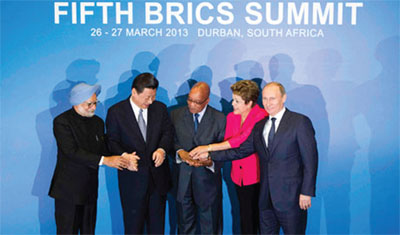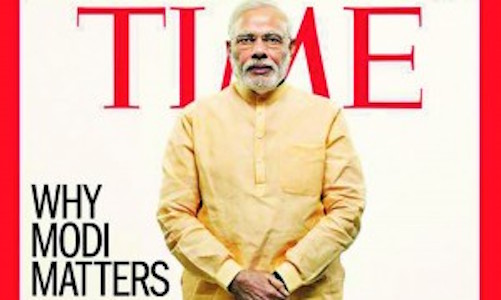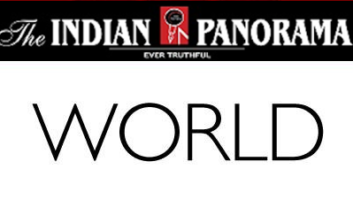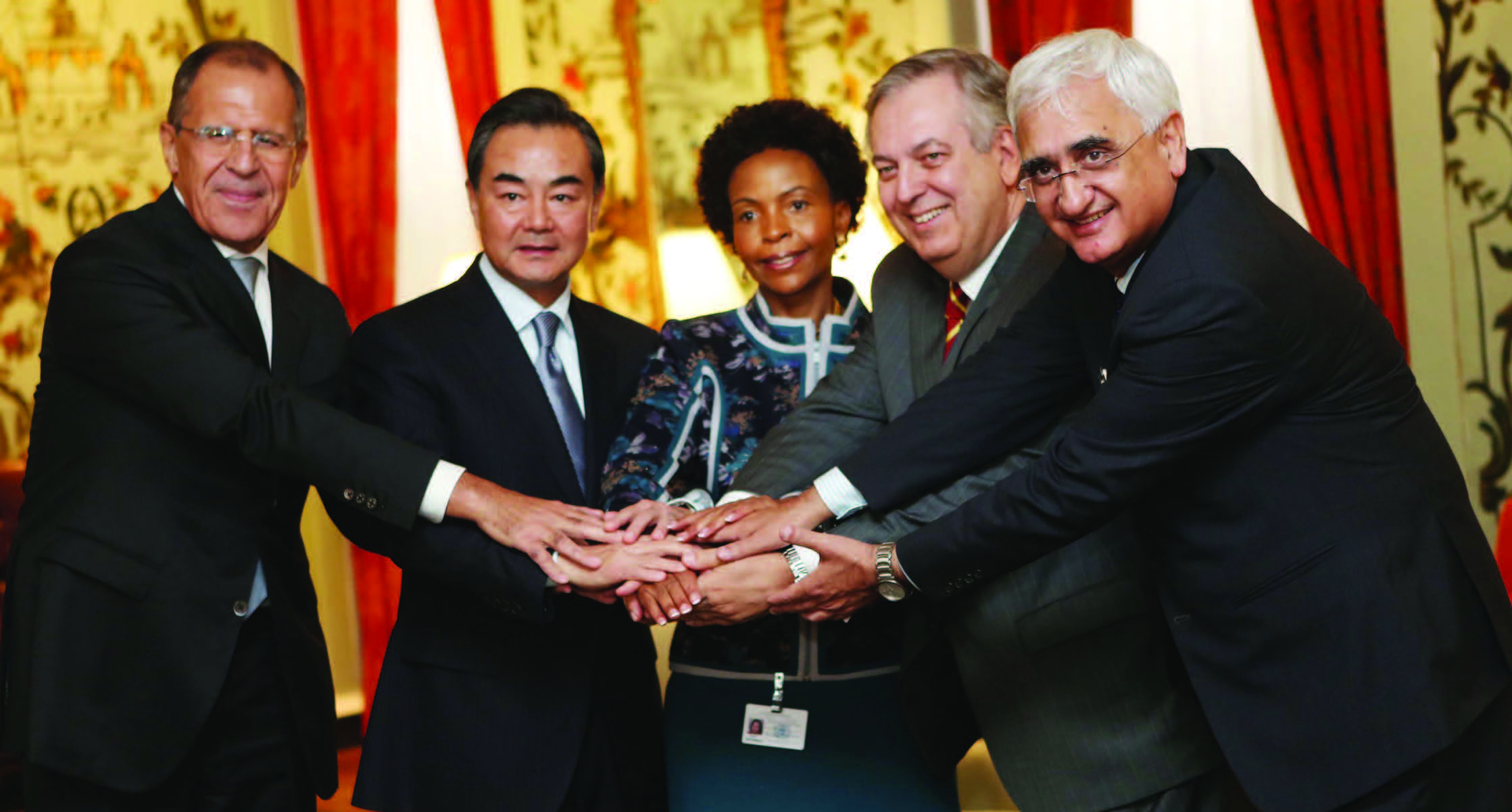
DURBAN (TIP): Five giants of the developing world have in principle agreed to create a development bank to provide initial funding for infrastructure projects worth $4.5tn (£3tn), in a potentially historic challenge to westerndominated financial institutions. The leaders of Brazil,Russia, India, China and South Africa – known as the Brics – sat together on stage in a highly symbolic show of unity in Durban, South Africa. The keynote phrase was “new paradigm” – and western politicians were conspicuously absent. But the gang of five, holding a summit on African soil for the first time, disappointed some by admitting that they have not yet resolved differences over how much seed capital the bank will start with or where it will be headquartered.
Various technical details also remain to be agreed. The Brics bank will potentially rival the World Bank, where Africa holds only three seats on the 25-seat board and where Nigeria’s Ngozi Okonjo-Iweala was defeated for the presidency last year. The World Bank and IMF continue to be dominated by America and Europe. Pravin Gordhan, South Africa’s finance minister, said: “The roots of the World Bank and IMF still lie in the post-world war two environment. The reforms that have taken place are still inadequate in terms of addressing the current environment. We still have a situation where certain parts of the world are overrepresented.” He added: “We should see the Brics bank as part of a new paradigm to share resources and, as the Chinese minister said, achieve a win-win outcome.” Gordhan insisted the plans were on track and moving with “a great sense of urgency”.
Other developing countries would eventually be invited to join the bank, he said, adding that India had proposed $50bn of seed capital to get the initiative started, though no final decision had been reached. He brushed aside scepticism that South Africa could not afford its share, claiming that it could be sourced in different ways and over a period of time rather than in one instalment.
The development bank will be the first institution of the informal Brics forum, which launched in 2009 amid the global financial crisis, representing 43% of the world’s population and 17% of trade. South Africa’s president, Jacob Zuma, said the infrastructure needs of the Brics countries amounted to $4.5tn over the next five years. The bank also raises the prospect of massive road, rail and construction projects across Africa. Most analysts expect the bank to be dominated by China, whose economy is about 20 times the size of South Africa’s and four times as big as Russia’s or India’s – which could strengthen arguments for basing it elsewhere. South Africa, which greeted delegates with traditional Zulu dancers at Durban’s King Shaka airport, is reported to be lobbying hard. Caroline Bracht, a member of the Brics research group at Toronto University in Canada, said: “My opinion goes with the mainstream opinion, which is South Africa. It has financial stability and is the smallest but one of the most eager members of the Brics.
Geographically, it’s central. But the location is not as significant as who the CEO will be.” Patrice Motsepe, the newly appointed chairman of the Brics Business Council, said: “We have a particular preference, but it’s for the Brics members to decide. If you look at the strength of South African financial institutions, our corporate governance and auditing and accounting have been recognised as world class.” Motsepe played down suggestions that the Brics bank would compete against American and British interests. “There’s a huge need for partnerships and a role for all financial institutions and I’ve no doubt they’ll continue to play that role. I’m on a board of JP Morgan which is chaired by Tony Blair and they are very excited by the opportunities in Africa.” Zuma said the bank also will establish a “Brics contingent reserve arrangement”, a pool of $100bn to cushion member states against any future economic shocks and further lessen their dependence on western institutions. Later, Zuma invited 15 other African leaders to the meeting for an opportunity to meet his Brics counterparts. In the cordial public greetings there was no mention of growing scepticism around the role of China, now Africa’s biggest trading partner.
In a recent article, the governor of Nigeria’s central bank, Lamido Sanusi, accused China of being “a significant contributor to Africa’s deindustrialisation and underdevelopment,”, with its cheap manufactured goods flooding the continent and its consumption of raw materials preventing Africans from adding value to their natural resources. There is a “whiff of colonialism” about China’s approach to Africa, he suggested.
Brazil’s president, Dilma Rousseff, said the Brics alliance has proved the doubters wrong. “Even the most sceptical voices do recognise the contribution the Brics bloc of countries has provided in the field of international economics,” she said, calling on the IMF and World Bank to become more democratic to clearly reflect the growing influence of developing countries. Meanwhile, Syrian president Bashar al- Assad sent a letter urging the Brics leaders to “work for an immediate cessation of violence that would guarantee the success of the political solution”. Although the five leaders shied away from the topic in their public remarks, the final summit communique did address it. In what some interpreted as a softening of Russia’s position towards aid reaching rebel-held areas, it said: “In view of the deterioration of the humanitarian situation in Syria, we call upon all parties to allow and facilitate immediate, safe, full and unimpeded access to humanitarian organisations to all in need of assistance.”





Be the first to comment